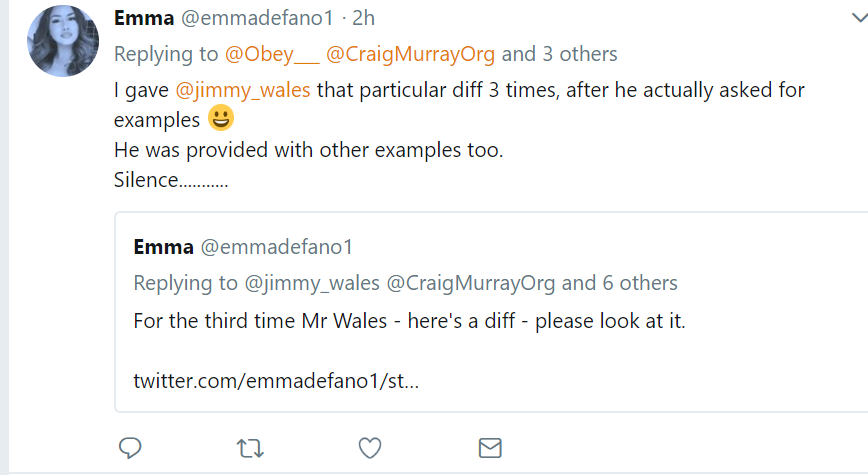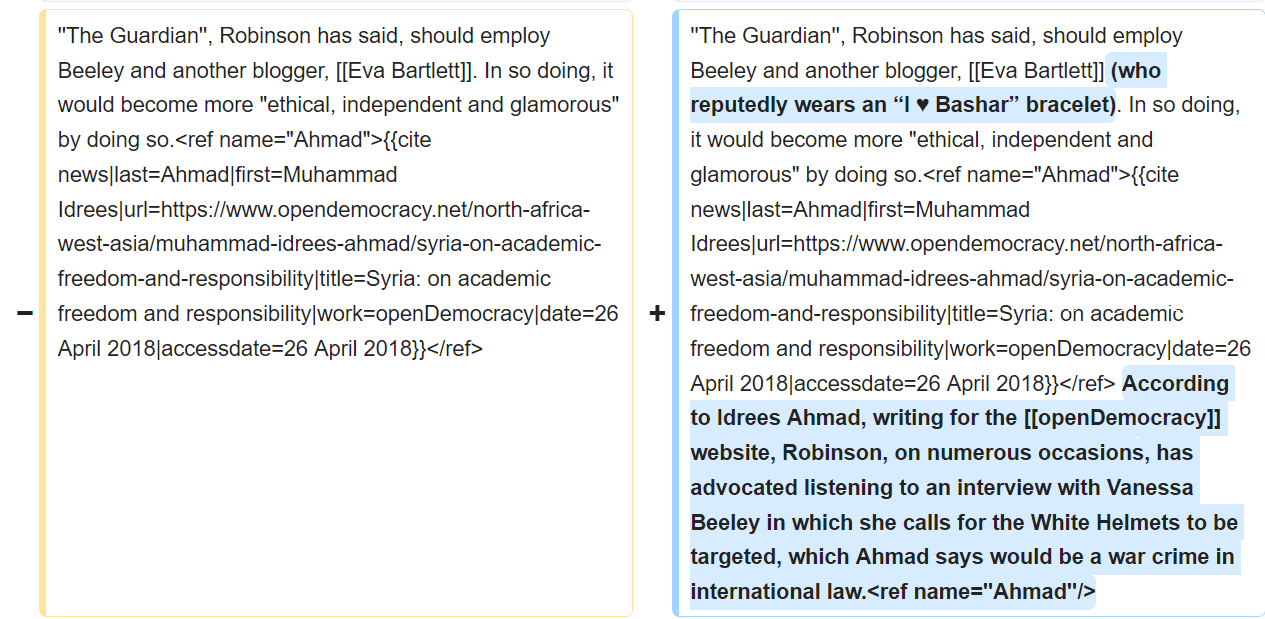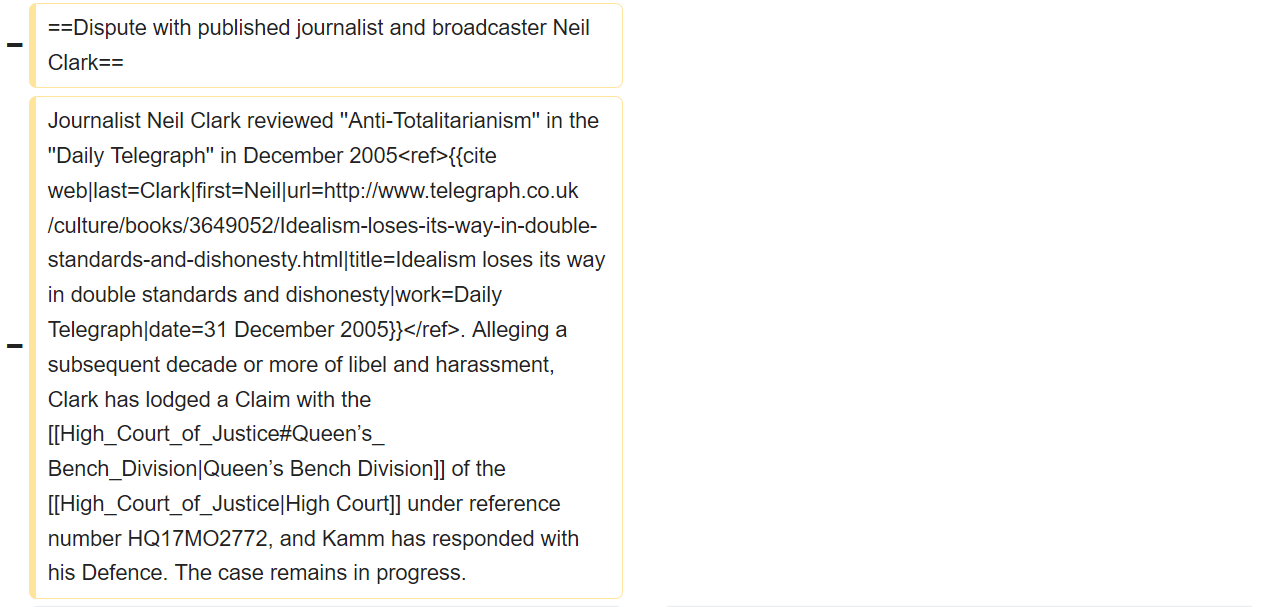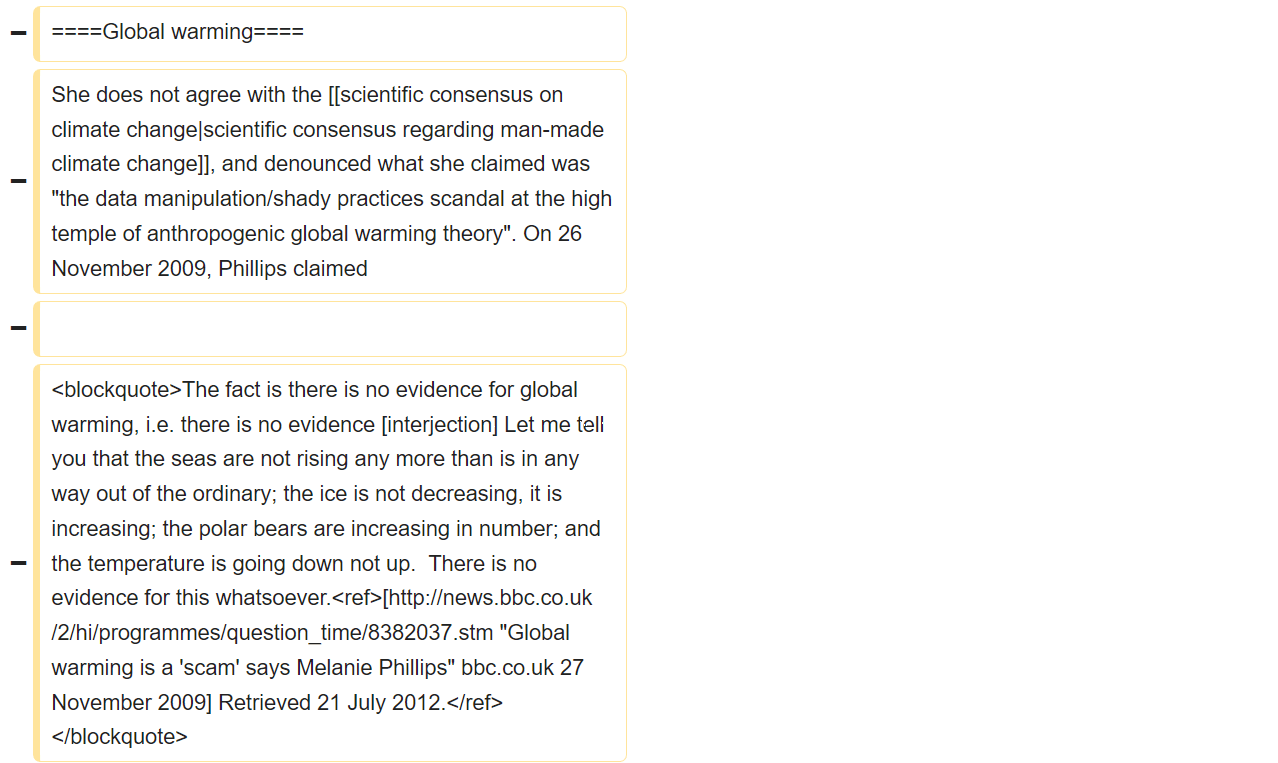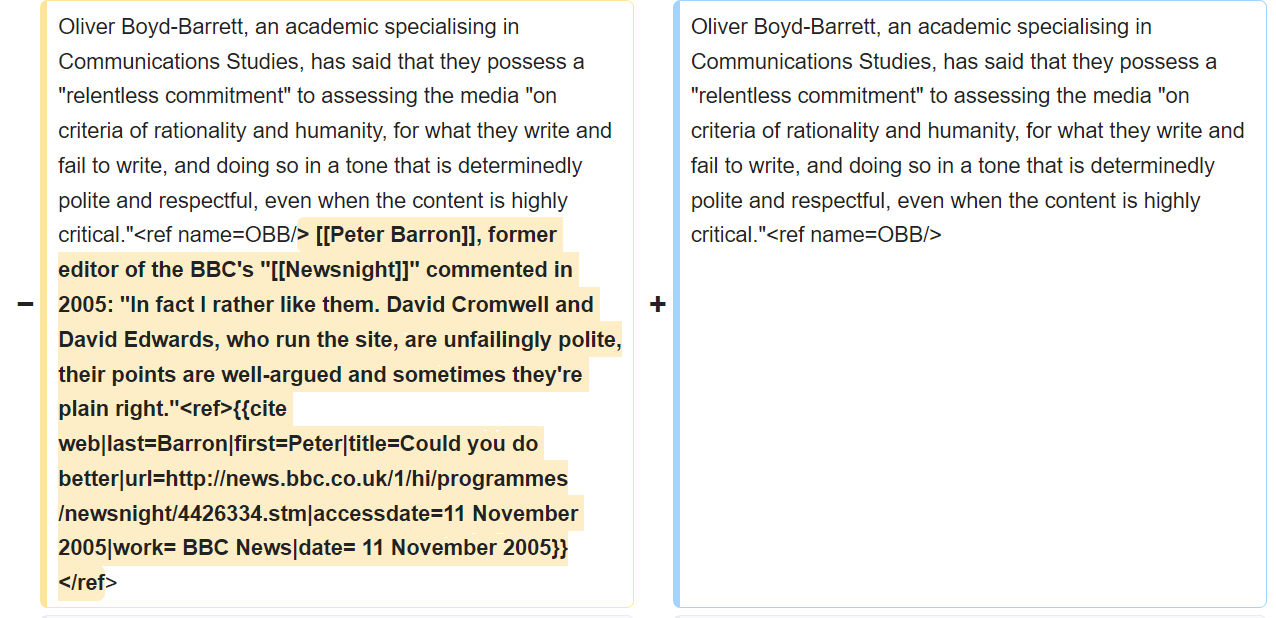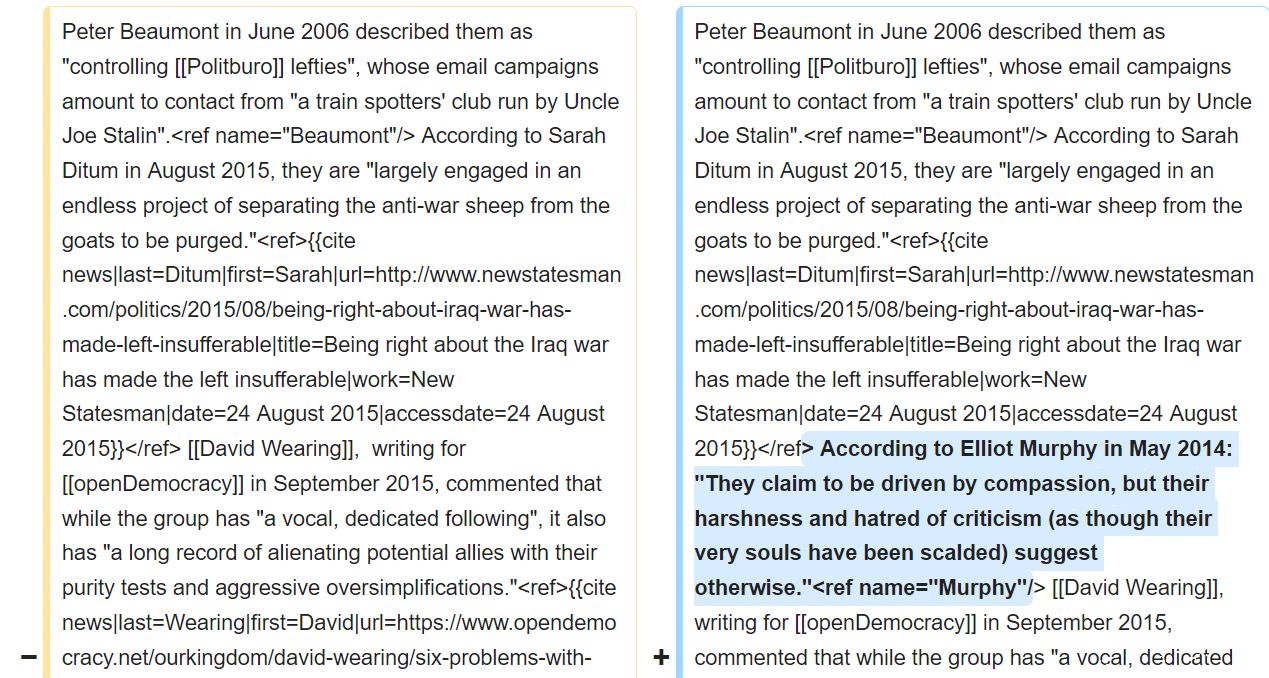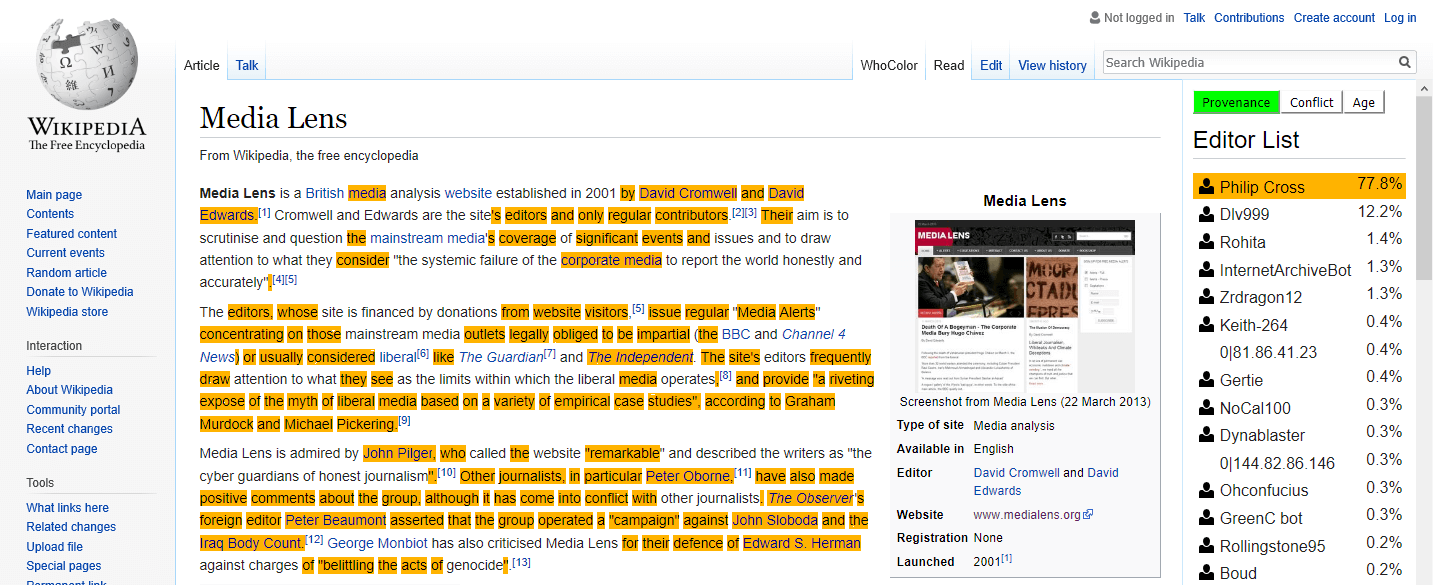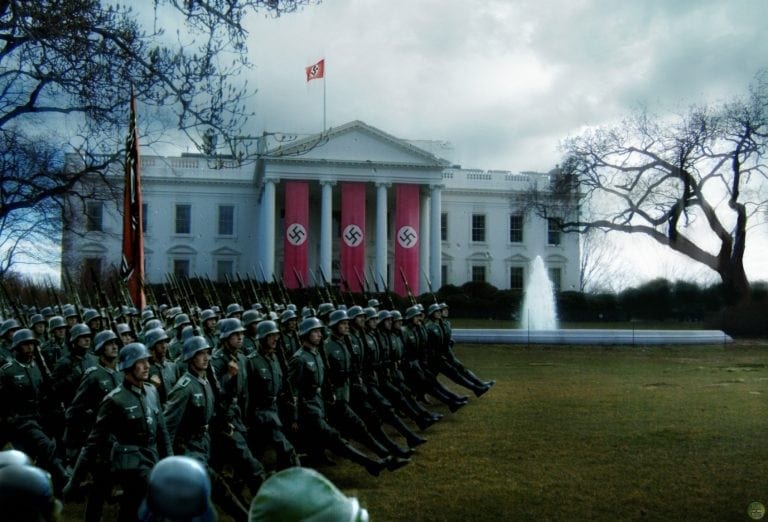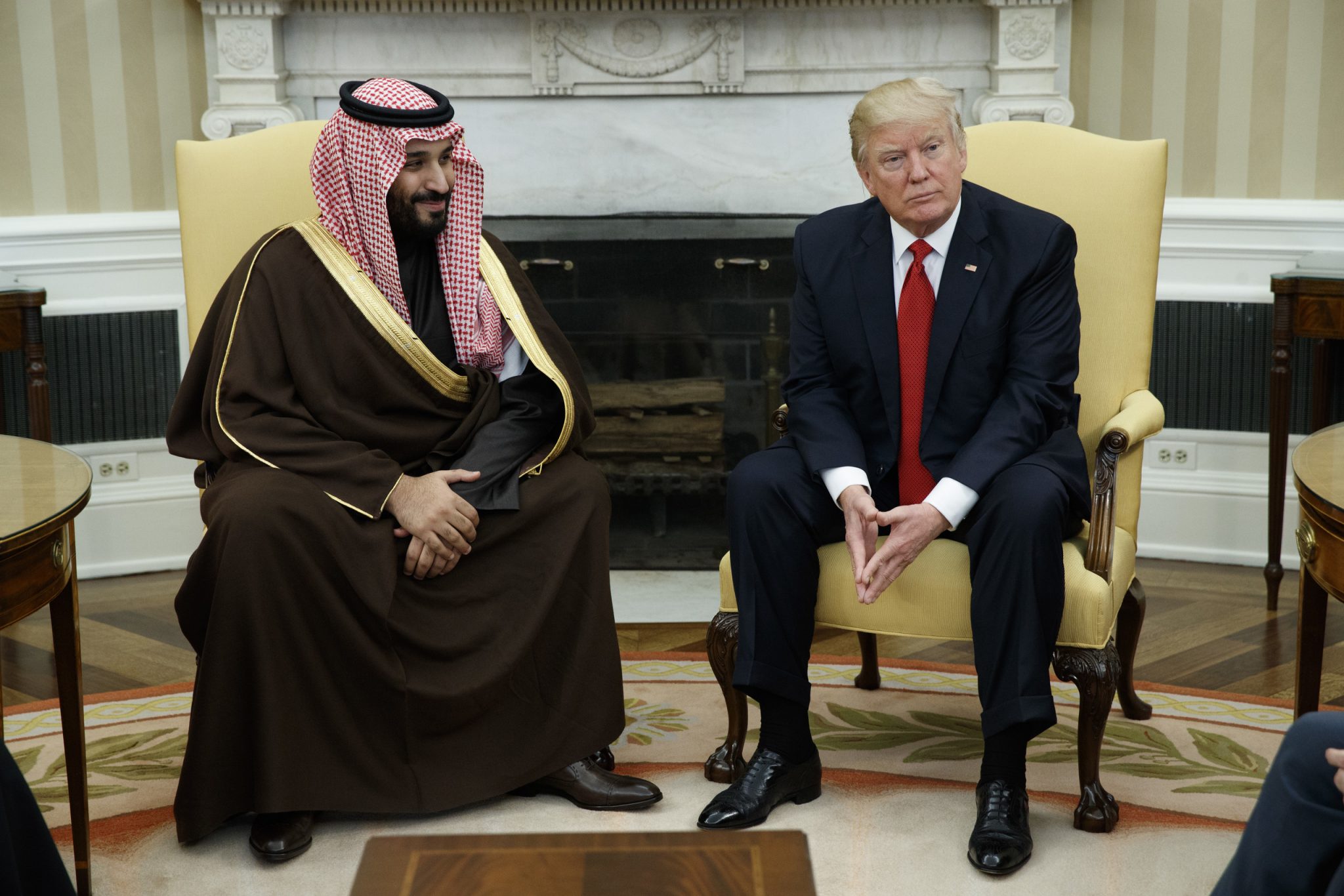 When you have a world war, there is no question: We are all living in a postwar world. However, not all subsequent generations have been shaped the same.
When you have a world war, there is no question: We are all living in a postwar world. However, not all subsequent generations have been shaped the same.
In debunking the standard view of the Cultural Revolution in this series – and also showing that, when it came to politics and non-musical revolutions, John Lennon was the status-quo company man and Mao was the real rock ‘n roller – we see that China’s mid-1960s revolution succeeded even though parallel cultural upheavals failed to produce the nearly-identically desired systemic changes across the West.
Because China was seemingly the only 1960s revolution which actually succeeded in rebooting their political system, we are faced with a question to which the Western postwar experience doesn’t really apply: How will China’s post-1960s generations develop, and then lead society?
We all know what followed the West’s political failures of the 1960s:
Baby Boomers have proven to be totally incapable of taking the torch from their “Greatest Generation”. The Clintons, Dubya Bush, Obama and Trump are synonymous with corruption, hypocrisy and stupidity, and both America’s 99% and the rest of the world is unhappily living under their most inglorious reign. That’s not my opinion - just talk to any Westerner and they are totally dissatisfied with their systems, except for the tiny Nordic countries, but they have been conditioned to believe TINA (There Is No Alternative) and are too underpaid to have time to be involved with political alternatives.
The children of Baby Boomers became known as “Generation X”, who became disillusioned, navel-gazing and appallingly apathetic to all things political. This second generation clearly did not think much of their parents; in no uncertain terms they proclaimed that Baby Boomer political “glories” were just lying stories. They were right (excepting only African-Americans, who did not win anything close to what they wanted or deserved but did end Jim Crow).
This 2nd generation refused to honor their parents - probably because their parents set unworthy examples - and it’s certainly true that these Baby Boomer parents actually encouraged their children to rebel, as though willy-nilly rebellion is some sort of virtue. That is an enduring aspect of American culture which remains undeniable today. Furthermore, Generation X was invariably instructed - at home and in the general culture - to not honor any of the gods of their allegedly totally-square “Greatest Generation” grandparents, whose rigid unhipness showed that they were wrong in all ways and at all times.
The result of Generation X is clear - being told they have no ancestors to honor, they honored only themselves. That may sum up the expected view from China.

Even capitalist establishment publications, like TIME, which, if anything, prop up the very selfish system they chronicle, have zeroed in on the problem of jaded selfishness characterising millions of young Americans.
What they are most defined by, however, is alienation: they were encouraged to be attached to nothing, they abandoned political efforts to improve the world probably because their parents totally failed in this regard, they rejected all authority – and thus the barest unity – and live today in consumerist individualism with at least 3 TVs in every house. They are the first generation to be totally weaned on “identity politics”, which is the idea that my ideas and needs matter, alone; they pride themselves on “being above political parties” and are proud to be inconsistently all over the map. For them, earthly paradise will occur when only their ideas are followed, and I imagine that in their heaven it is just them all alone with God. Perhaps, like Sartre they feel that “hell is other people”, as they are so very alienated.
The religion of this Generation X is sensual, emotional and not logical; it is certainly a personalised “spirituality”, which comes and goes as a muse might. Most aggravatingly, their commandments are personalized and thus unknowable, and this is why they are so very easily offended: their moral (and thus political) structures are totally unpredictable and undependable. They cannot even express their religious convictions when pressed. However, it is considered impolite to ask an American about religion, and the only people who bring it up in public are in America’s lower class.
So we see how thoroughly the Western Baby Boomers’ political failure has been passed on to their next generation: Even though Generation X is about to take the reins and have staffed the lower levels of government for decades, they cannot muster even a handful of prominent, successful politicians in places like the US - everybody sees right through them and finds nothing but will-to-power and individualism. Thus there are nearly NO Generation X leaders in the West. Even France’s Emmanuel Macron, born 1977, could almost be classified as a Millennial, and I note that his presidential portrait included two smartphones.
I’m not going to get into 3rd-generation Western Millennials other than - I see a lot of good things. They are certainly far less ego-driven (I’m a tough guy / I’m Wonder Woman) than the postwar or Boomer generations, and a lot more community-minded. However, I note that if Western-style-TV-from-birth destroyed Generation X, it’s possible smartphones-from-birth will do the same for Millennials. But it’s early….
What’s undeniable is:
China’s equivalent to the Baby Boomer generation certainly did not fail – their Cultural Revolution was not just “tune in, turn on and drop out”. Whether you condemn it or condone it, their student radicals actually were given tremendous political power (by a far more enlightened and politically modern elder leadership) and thus actually DID change things. Indeed, a good proof of the Cultural Revolution’s success is all the opprobrium heaped on it by the West today, where the reactionaries clearly won: Nixon & De Gaulle re-elected, societal changes limited to culture and not political structure, etc.
 It is interesting to read current reports from Egypt, seven years after Tahrir Square (where I reported during the fall of Mubarak): Egypt’s revolution has also totally failed, and they are now following the same pattern as the West. Egyptians report that their failed revolution did at least produce more societal openness (mainly regarding sexuality), and allow more challenging of traditional and religious structures and ideas, but there is certainly less freedom, both economic and political. (As Martin Luther King said: There is no freedom without economic freedom, and he was not talking about the 1%’s rights under neoliberalism, LOL!) Al-Sissi has the country pointed in a 100% neoliberal direction, and we can predict that life for the average Egyptian will be far less free in the coming years because they will be far more poor, even if they are “enriched’ by the ability to discuss sex in public and the far less-desired right to be a proselytising atheist. There is no reason why Egypt’s 1% would not make these cultural concessions in order to not touch the political and economic structure which keep them above such things, of course.)
It is interesting to read current reports from Egypt, seven years after Tahrir Square (where I reported during the fall of Mubarak): Egypt’s revolution has also totally failed, and they are now following the same pattern as the West. Egyptians report that their failed revolution did at least produce more societal openness (mainly regarding sexuality), and allow more challenging of traditional and religious structures and ideas, but there is certainly less freedom, both economic and political. (As Martin Luther King said: There is no freedom without economic freedom, and he was not talking about the 1%’s rights under neoliberalism, LOL!) Al-Sissi has the country pointed in a 100% neoliberal direction, and we can predict that life for the average Egyptian will be far less free in the coming years because they will be far more poor, even if they are “enriched’ by the ability to discuss sex in public and the far less-desired right to be a proselytising atheist. There is no reason why Egypt’s 1% would not make these cultural concessions in order to not touch the political and economic structure which keep them above such things, of course.)So, Westerners can project their own experiences onto China as hard as they can, but the success of the Cultural Revolution created a major postwar divergence for China, and one which is as unappreciated today as the Cultural Revolution itself.
What we can do, and only perhaps, is to set our our gauge back, due to the Cultural Revolution’s success: their “Greatest Generation”, the one who actually won a war, is thus equivalent to the Western Baby Boomers.
Were I a Chinese, that would make me a part of the “Baby Boomer” generation (I am 40); if I marry a Chinese lady and have children (Inshallah), then our kids would be in China’s Generation X. But…is there such a generation already?
Bad news to report: Young Chinese say they aren’t communist
I have Chinese friends, colleagues, and multiple family members who have lived for years in China. The Chinese of this generation - my peers - routinely, but not universally, say that yes, China is not communist.
Surprised I’d admit that, eh?! Think I’m unobjective, do you?!
This is truly a real issue which must be examined. Is it possible that the Western press is actually right?
I say: “No”. Or rather, I say: “I do not really know”.
The reality is that I have never lived in China, have only visited, and that the Chinese people I know are all necessarily hugely influenced by the West.
Even the native Chinese in my family emigrated away from China, even if they went back, and as an immigrant myself I can say: you don’t become an immigrant be being 100% in love with your home country…or you would still be there. It’s also very easy to have an inferiority complex about your home country, because the reality is that immigrants are literally trying to survive in a foreign land and make some friends: it certainly does not make one popular to move to a new country and proclaim: “My home is better than this.” That is only for imperialists, who are there to steal and run, and thus are not truly immigrants. And also for hard-headed, annoying journalists like myself!
My point is - immigrants are not accurate representatives of their home nations: the “Irish” of America are not at all like the Irish in Ireland. Immigrants are certainly a minority, anyway. Therefore, you should largely ignore that combative headline six paragraphs above.
However, perhaps there is a genuine risk inside China?
The two post-Cultural Revolution generations - do they believe their parents are the “Greatest Generation” for winning their war?
I don’t know what goes on at the Chinese dinner table, but I know it matters
[dropcap]T[/dropcap]he Cultural Revolution veterans - who know from hard fighting and major personal sacrifice that capitalism is the enemy, that a bit of capitalism don’t spoil no socialist show, that they will never let capitalism dominate - have proven their totally-square socialist bonafides daily for decades. But the young “Boomer Generation” which runs from roughly 30-50 years old…many of them have only lived during the Deng-era capitalist reforms - are they solid socialists? And this group’s children, China’s “Millennials”, might be saying: “My father he ain’t no Che Guevara - he’s a total capitalist!”
The reality is that one’s character is formed at the dinner table, when you are at the elbows of your elders.
“Is old Yeye (father’s father) still going on about his time in the sticks during the ‘60s? Doesn’t he know that my Baba said The Economist called that a huge mistake? I sure don’t want to go to the country - it smells like cow dung! Can I leave the table? I want to watch my favourite TV show again in my room.”
If such a scene is happening regularly in Chinese homes…they will have a problem. That scene has been happening all over the West since the first Boomers started having kids in 1965, and it can happen to China.
(LOL, the primary fault here is calling something your grandfather did “stupid” within earshot of your parents. Certainly that was a hanging offence in my household….)
Ultimately the problem is cultural, and one of corruption: not just monetary or judicial or political, but corruption at the dinner table night after night. This is social and thus ethical corruption. This is a common theme in Iranian politics, but something which the West almost refuses to even consider, which I find so very, very strange.
Such concerns have been falsely labelled as “conservatism” by the West’s fake-leftists. They fail to see that the dinner table is also where leftist revolutionaries can be formed, or not formed. Debunking capitalist propaganda takes more than just one discussion, and more than just one day of shouting slogans at a protest.
So maybe China is capitalist, dammit? Is there a Chinese Generation X, which will take power from the Cultural Revolution generation, and are they really as bad as the West’s Generation X?
I can’t possibly say, to be honest.

Consumerism has become a feature of the younger Chinese generation who, in many cases, have no emotional connection to the great sacrifices the previous generations made to make China modern, affluent, and independent.
Even though what I have described are easily foreseeable, universal responses to modern human experiences, to give an actual answer on this cultural issue is far beyond me; dinner-table dynamics are the most complex in any society, and they go beyond my Chinese ken.
That’s why I’m glad to see the answer so emphatically given in the title of Jeff J. Brown’s
China is Communist, Dammit! This 8-part series has taken his book, and John King Fairbank’s extremely popular university textbook, China: A New History, as jumping-off points to discuss Communist China in 2018.
The reality is that we non-Chinese simply MUST defer to Brown on the question of whether China’s two younger post-Cultural Revolution generations are committed communists or not, due to our lack of knowledge of 2018 China. Cultures change, and quickly: I’m sure an alien visiting Iran in 1978 and 2018 - just 40 years - would be quite surprised at the changes (and pleasantly). Fairbank could never answer this issue, as he passed in 1991. Read Fairbank if you like, but you simply cannot expect answers about what Chinese 2018 culture is like.
However, what neither Fairbank, nor myself, nor you have to completely defer to Brown is regarding the question of whether or not China is communist. That is a question of political analysis of China’s structures, motivations and results. The idea that “all governments are the same”, or some such nonsense, is mere political nihilism: socialism and capitalism have clear structures, policies and easily-traceable patterns which mostly contradict each other.
So why should I kowtow to the political analysis of China of a fictitious Chinese immigrant…if he or she lacks broad political knowledge, or is overly-influenced by Western media? Indeed, to read Western journalism on socialism is to read (not even propaganda, because that requires intelligence) nonsense, stereotyping and sensationalism. “I am Chinese, therefore my political analysis of China is superior to yours” does not hold water. (Indeed. About half of the US electorate chose George W. Bush for president, and did the same for Ronnie Reagan, another execrable political felon. Did these Americans really know what was going on in the country just by being there? Similarly many, tens of millions of influential liberals remain fascinated by Barack Obama, one of the greatest charlatans in recent memory. And what about today, shall we take the word of the MAGA crowd for the state and intentions of America in the world at large?—Ed)
What does hold water is: “I am Chinese, therefore my cultural analysis of China is superior to yours.”
Certainly. But it is quite easy to understand a lot of culture but zero politics, I think we’ll all agree.
 However, Brown is not just culturally literate regarding modern China but also obviously politically literate across multiple lands to an extremely high degree. I am not trying to sell his book: I am pointing out the validity of his analysis for our era.
However, Brown is not just culturally literate regarding modern China but also obviously politically literate across multiple lands to an extremely high degree. I am not trying to sell his book: I am pointing out the validity of his analysis for our era.
Therefore, if he says China is communist (dammit!) in 2017, then we truly cannot find too many more trustworthy sources in English. Fairbank’s book is two decades old and, despite all its mainstream banking and its Harvard imprimatur, it is truly out of date in modern cultural analysis by a generation.
So you can ask your Chinese friends, as I do, and maybe they’ll say that China isn’t communist…and I wouldn’t say that Brown “knows more about China” than they do - certainly - but I certainly feel quite comfortable positing that Brown may understand Chinese politics & geopolitics better than they do.
So is Part 8’s headline a major concern in 2018 China, or not? Well…alienation, rampant individualism, and corruption of all types always are, aren’t they?
‘Gen X’ is always an existential threat, and thus every generation must be righteous
[dropcap]A[/dropcap]lienation was not discovered in a buried chest in 1946 in Europe - total dissatisfaction with one’s culture and leaders, total disbelief in the power of religion, total post-traumatic stress disorder caused by war and pillage, total disbelief in the ability of humans to create a better world, and a feeling of certainty regarding the total power of human destructiveness is not at all a new sentiment in human history.
But alienation - while real and important and which cannot be ignored - is something which faithful people don’t have time for: they have to get to work.
However, alienation amid peace and plenty is a first-world problem, I believe. And that is where China nearly is - the first-world.
They are not the first socialist country to get there - there is absolutely no doubt that the USSR was on par with the West economically and superior culturally - but they are the first one to reach their level since the demise of the USSR.
They are about to have first-world problems, like the Japanese tourists who get hospitalised by “Paris shock”, i.e. the disparity between the romantic image of Paris and the reality that most looks and treatment here equate to, when compared with polite Japan: “eat dirt and die”. The medicine for such “victims” is clearly a strong dose of Chinese Cultural Revolution farm work, with a heavy emphasis on manure spreading….
Absurdities aside, China truly represents the undeniable, at least medium-term, rebirth of socialism and communism…even though the West declared it to be dead, and went whole-hog into the maximum form of capitalism possible, neoliberalism.
Because it is clearly not dead, their only choice is to co-opt it by falsely claiming its success. I imagine this is the root of Brown’s title.
Thus the cultural threat of denying China’s “communist-ness” – and thus denying Chinese history and the Chinese experience today – is why Xi is so important: a Gorbachev-like pandering to the West, or a Brezhnev-like tolerance of stagnation / corruption / black market / “reactionary dissent and sedition is what ‘free speech’ is”…is all that can turn the tide of China’s rise.
However, I always hate to reduce nations to just one person. Especially in socialist-inspired countries which had modern revolutions, focusing on the leader is a structurally inaccurate to describe their societies, which is why propaganda efforts do exactly this. China - like Cuba, Iran, etc. – is not run by a person but by a vanguard party which has grassroots-elected, democratic support. The preferred presidential candidates of Iran’s “Supreme Leader” have repeatedly lost, for example - these are modern democracies, not Macronian liberal warlords.
Therefore, let us think of Xi only as a symbol for what all of China’s middle-aged and elders must be like, both now and in the generations to come:
The role of Xi: not spiking the ball on the 1-yard line
If Xi is part of the “Greatest Generation”, surely he rejects such a moniker: it implies that China has already peaked, already won. China has further to go, and many to help bring along with them, lest they be selfish capitalists.
The good news is: Xi spent 7 lice-filled years helping to bring the countryside up to modern levels during the Cultural Revolution - he will not be hospitalised by a rude French waiter.
And Xi is doing the opposite of Gorbachev – he is following, per Brown, in Mao’s footsteps by leading anti-corruption campaigns, cleaning up corruption in the Peoples’ Liberation Army and reducing propaganda contamination points the West so desperately needs open, now that they have no “hard power” options.
This is probably why Xi is so popular: he is doing what the People want – strengthening them and their chosen institutions. China has just ended their 2-term limit for presidents, with widespread domestic support…and I say: good call.
Of course China should want their “Greatest Generation” (the Cultural Revolution generation) to stay in power: have you seen how bad the West’s two ensuing generations are doing?! China is so close to being a humanity-improving superpower…and you want them to spike the ball on the 1-yard line because George Washington said so?
George Washington, the root cause of of the two-term trend, quit after two terms - it’s pretty easy to hand the reins to your successor and say: “Keep stealing land and enslaving people: boom, economic growth issue - solved! Now don’t bother me - I’m retired and have many slaves to beat and/or rape.”
Xi is likely looking at Germany's liberal strongwoman Angela Merkel – now in her 4th term of control – and seeing the positive national effects of long-term leadership within a democracy.
He is likely also looking towards Iran’s model, where the elected role of the Supreme Leader provides a constant counterweight in favor of ideological purity, against backsliding and in favor of the defense of Iran’s popular, anti-imperialist, socialist-inspired revolution. It’s not all the economy, stupid - who is keeping track of the intangible and spiritual within the political?
(It is ironic that Communist China cares more openly for this issue of spirit than the rabidly secular West, as is abundantly proved by Brown’s chapter “21st Century Street Art for the Communist Body And Soul”, which documents state “propaganda” efforts on totalitarian obsessions such as “Dedication”, “Equality”, “Freedom”, “Harmony”, “Honesty”, etc. No such propaganda efforts exist in the West, because a government is what it promotes: the West promotes neoliberalism - no government - and so they produce no art or advertising designed to help people better themselves, because the government is not supposed to care or get involved.)
Germany's democracy is West European (bourgeois), Iran's is Islamic, and China’s is Chinese socialist and none are perfect - as only God is – but we cannot deny that all three are indeed working democracies, with voting citizens, regular protests, repeated polls of support for their systems, etc. They have structural weak points, but they knew the weak points when they created and kept supporting their chosen system (although it seems totally incorrect to call postwar Germany’s imposed system “chosen”, and there is also the ongoing US occupation).
At the very least, all three of these nations are certainly not authoritarian dictatorships nor neocolonial puppets, like most of the developing world is, and that is no small success to a journalist surveying the world in 2018. It’s an absurdity that Iran and China are portrayed as such.
Xi is also looking at Russia, where Putin had the cunning to defy George Washington via recourse to legalistic explanations. This was not very honest…but the Russian people voted repeatedly, and the Russian system is just as democratic as any of the above three, so outsiders cannot say the Russian People don’t largely have what they want within their system. No “humanitarian intervention” needed here either, please.
Because of the US and EU’s military impregnability and the lack of any outside neo-colonial influence, they simply cannot comprehend the feeling among Iran, Cuba or others of being forced to operate under the gun. But certainly, in a time of crisis - WWII - the US abandoned the George Washington precedent to save their nation, as Roosevelt served 4 terms. Amid constant US belligerence Xi can fairly claim to be under threat (fairly…but certainly not after one more decade of socialist economic success, especially as the Eurozone’s never-reported Lost Decade is likely to turn into a Japanese-like Lost Score); France’s Hollande or Macron cannot make the same claim legitimately, but they certainly did whatever they wanted via citing the threat of “Islamic terrorism”.
So if China was communist, dammit, when Brown’s book was published in 2017, they will certainly remain communist for another 5 or 10 more years under Xi.
Xi’s success and, as Brown’s book demonstrates over and over, Xi’s socialist bonafides cannot be denied. Rules are made to be broken, but not the dream of socialism.
The world needs Chinese socialism to remain strong…obviously
[dropcap]I[/dropcap]t is said that one’s true character is revealed after one becomes successful and achieves their dreams.
For some, like Xi, the dream is moderate prosperity. For some, like Iranians, the dream is paradise on earth as much as possible in order to earn paradise in the Afterlife. For some, like the French, the dream is (I am quoting French people here) to be Gerard Depardieu: to be constantly eating, constantly drinking, constantly posing like an actor, to be considered a great artist just for posing, constantly arguing, constantly undermining everyone else’s faith in anything. For some, like Americans, the dream is everything in the world you can possibly imagine. It’s possible there may be some stereotypical nonsense here….
Let’s stop with the nonsense: China is socialist, dammit!
Capitalism is only a tool - in order to build wealth in order to have something to share - and a necessary one to construct communism, per Marx. China’s ideals are certainly communist and there certainly is a very real, very effective, very concerned Communist Party in charge. Anyway, communism is an ideal communists pray to (the atheistic communists, that is, who are definitely a tiny minority); socialism is what working people do to improve the world a bit more today.
Ultimately, this article asked the question: What is “21st century socialism” when successful?
Because they are no longer susceptible to intense outside pressure, China is certainly the one which will most elucidate this answer, and with the most intense global and historical ramifications.
There is an easy way for China to put this very long-running “are they or aren’t they communist” question to rest: give more support for other nations in regions which are certain to encounter Western resistance, and possibly hurt China’s bottom line by doing so.
Cuba used to do this, Iran does this…but these are costly. China helps far more than they get credit for, and certainly they gave in Korea and Vietnam, but their twin socialist success in both economic growth and economic equality is getting to the point where cost is not truly a major issue if they have socialist-inspired ideals. China has remained rather (pre-WWII) Stalinist in foreign policy since Deng, and that can’t continue forever.
They aren’t about to start giving major support to Palestine, sadly, but China needs to start throwing its weight around in favor of socialism again. Foreign help will show the young generation that sacrifices must be made (thus be content with “moderate prosperity”), and it will also force Westerners to accept their socialism-ness. All this increased acceptance of Chinese democratic socialism will only safeguard China further.
But if there’s one thing China has done better than any socialist-inspired nation it is: playing the long game. And the communist long-game is, clearly, nationalist Stalinism until universal Trotskyism. At least, that’s what they will call it if communism goes universal (of course, some Trotskyists won’t be happy until communism AND atheism goes universal, thus pushing their idea of victory to the realm of, I believe, impossibility). But you don’t skip steps in a game - unless you want to lose.
However, the idea of Stalinism (socialism in one country), which Maoism has clearly incorporated, is essentially: take care of your own backyard, and wait for the rest of the neighbourhood to catch up. But what does China do when their backyard can’t be made more beautiful? Either you harmoniously share the wealth with your neighbors, or the cycle of success ends and you wane into unharmonious capitalism.
A self-sufficient, safe, thriving China…choosing to implode into capitalism?! The USSR did it, but I think China is not blind to history.
But…people do crazy things which cannot be explained, the electron’s path still cannot be predicted, and political science is not a science.
Some questions may remain up for debate, but in 2018 it is certainly crazy to call China capitalist, dammit!
Series Postscript:
[dropcap]I[/dropcap] used many proofs for this series from Jeff J. Brown’s book, not just that final line, so I’d like to stress: If one wants to find seemingly unprecedented documentation and analysis of modern China …one would be much better off buying his book than reading this series.
I’d also like to say that I wrote this series entirely without any personal involvement from Brown whatsoever, so there can be no question regarding my objectivity.
I hope this “double-book review” has shown just how different China scholarship can be, and also how much scholarship can change in just 20 years. I also tried to provide a few original ideas to put up for discussion, and to show how China’s experience can be useful in other countries.
I do owe Brown a debt of gratitude for writing such a fine work on which I leaned heavily. I also owe a debt of gratitude to the legal doctrine of “fair use”, which allowed me to quote extensive parts of Brown’s and John King Fairbank’s books without violating copyright laws!
To the dearly departed Mr. Fairbank: Yours is certainly not an unuseful book, but quite reactionary by even 20th century political standards. However, because you explained your scholarship and methods so clearly, when less biased and more modern ideas could be applied to your data more accurate answers on Communist China could be produced.
Finally: I’d like to point out that this series has been very clearly a political analysis of China, and not a cultural analysis. I have almost exclusively re-examined historical events and described political structures & policies.
Brown and Fairbank are China scholars who are qualified to make non-Chinese cultural analyses of China. However, political analyses are the privilege of every citizen - from the bus driver to the professor. Political analyses must be so very democratically available in order to constantly find - via merit and consensus - socio-political solutions to socio-political problems, the most pressing of which are, I believe, universal.
It seems quite incorrect to conclude this series with something focusing on myself….
New analyses are needed on China, and on many other socialist-inspired nations - the events of 1989-91 were a long time ago, and the Great Recession is proving, still, that the alleged victory of capitalism was very short-lived. Whatever socialism’s failures have been and are, the 1%-led Western model clearly cannot lead any country, as their leaders do not even wish to capably lead their own nations and communities - just their own fortunes.
***********************************
This is the final article in an 8-part series which compared old versus new Western scholarship on China.
Here is the list of articles which have been published, and I hope you will find them useful in your leftist struggle!

 In his zeal to prove to his antagonists in the War Party that he is as bloodthirsty as their champion, Hillary Clinton, and more manly than Barack Obama, Trump seems to have gone “play-crazy” -- acting like an unpredictable maniac in order to terrorize the Russians into forcing some kind of dramatic concessions from their Syrian allies, or risk Armageddon.However, the “play-crazy” gambit can only work when the leader is, in real life, a disciplined and intelligent actor, who knows precisely what actual boundaries must not be crossed. That ain’t Donald Trump -- a pitifully shallow and ill-disciplined man, emotionally handicapped by obscene privilege and cognitively crippled by white American chauvinism. By pushing Trump into a corner and demanding that he display his most bellicose self, or be ceaselessly mocked as a “puppet” and minion of Russia, a lesser power, the War Party and its media and clandestine services have created a perfect storm of mayhem that may consume us all.— Glen Ford, Editor in Chief, Black Agenda Report
In his zeal to prove to his antagonists in the War Party that he is as bloodthirsty as their champion, Hillary Clinton, and more manly than Barack Obama, Trump seems to have gone “play-crazy” -- acting like an unpredictable maniac in order to terrorize the Russians into forcing some kind of dramatic concessions from their Syrian allies, or risk Armageddon.However, the “play-crazy” gambit can only work when the leader is, in real life, a disciplined and intelligent actor, who knows precisely what actual boundaries must not be crossed. That ain’t Donald Trump -- a pitifully shallow and ill-disciplined man, emotionally handicapped by obscene privilege and cognitively crippled by white American chauvinism. By pushing Trump into a corner and demanding that he display his most bellicose self, or be ceaselessly mocked as a “puppet” and minion of Russia, a lesser power, the War Party and its media and clandestine services have created a perfect storm of mayhem that may consume us all.— Glen Ford, Editor in Chief, Black Agenda Report 






